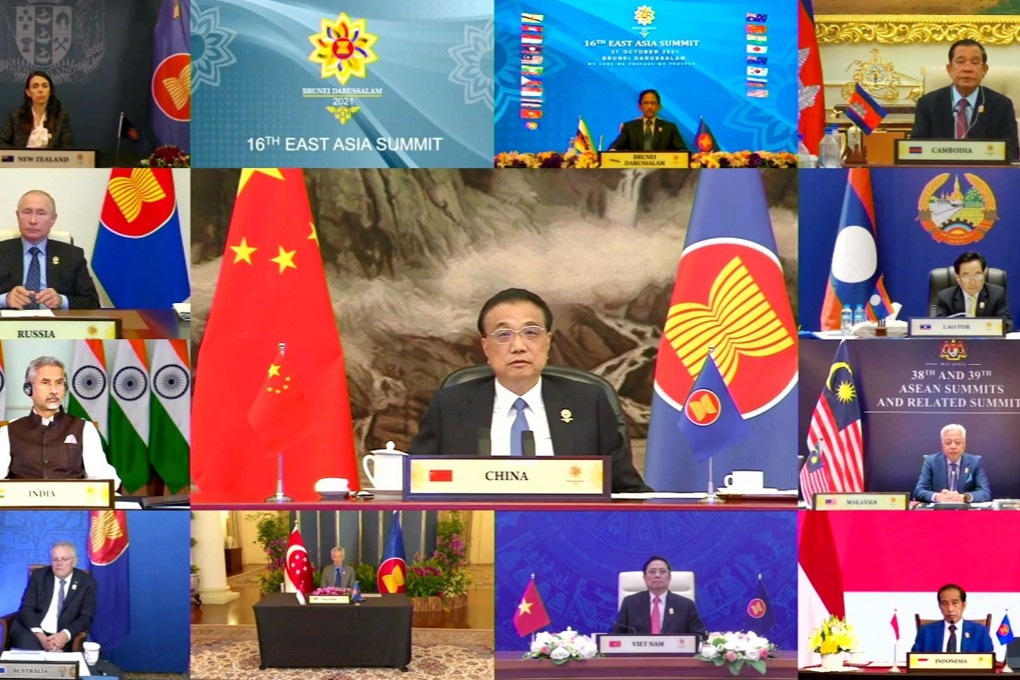Advertisement
Opinion | China’s sudden renewed interest in Asean may be more about Aukus than economics
- After a decision to upgrade ties to a ‘Comprehensive Strategic Partnership’, China’s President Xi Jinping is to meet Asean leaders in November
- Southeast Asia has become key to Beijing’s growing regional economic ambitions and security concerns
Reading Time:4 minutes
Why you can trust SCMP
1

A phoenix from the ashes
Several decades ago, East Asia became the epicentre of superpower rivalry during the Cold War. Following a stalemate war in Northeast Asia’s Korean peninsula, in the early 1950s, military and ideological rivalry shifted to the Indochina peninsula and broader Southeast Asia in the 1960s.
Advertisement
In the midst of debilitating turmoil, the Association of Southeast Asian Nations (Asean) was founded in 1967.
Notably, during the 1970s, several Western countries, including Australia, the United States and Japan, became Asean dialogue partners. The relationship typically enabled regular economic, foreign policy and other ministerial-level engagements between Asean and these countries.
Asean has over the last 30 years transformed itself into a regional bloc with 2020 GDP exceeding US$3 trillion, making it the world’s fifth largest economy behind the US, China, the European Union (EU) and Japan. As such, Asean has gained rapid recognition as a global economic and political powerhouse.
Asean’s rising status has been accompanied by increasing interaction with China following its first official dealings with the bloc in 1991. China subsequently became a dialogue partner in 1996. In 2010, a free-trade agreement was concluded involving the six non-Indochina states. This was upgraded in 2015 to include all 10 countries, further elevating Asean’s status as a region open to trade and economic partnerships.
Advertisement
This status was underlined when the bloc become the first international grouping the United Kingdom joined as a dialogue partner after its departure from the EU.

Advertisement
